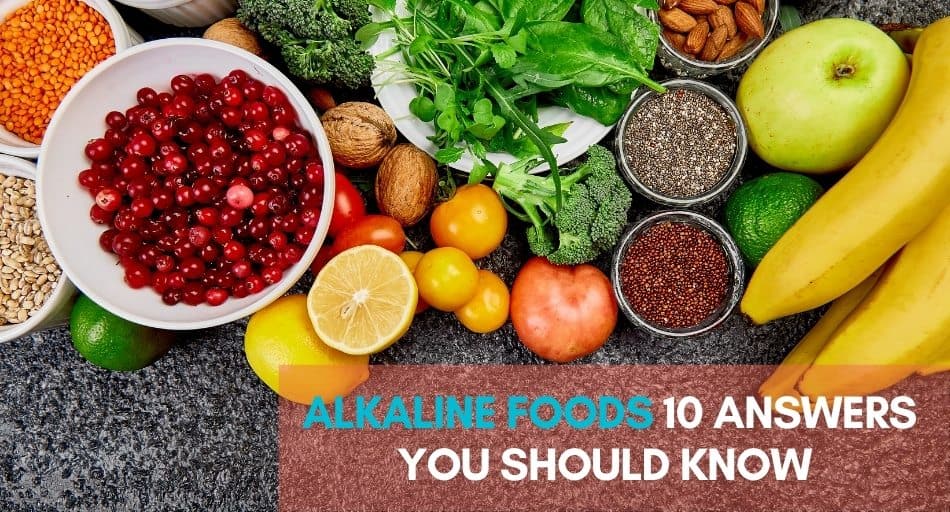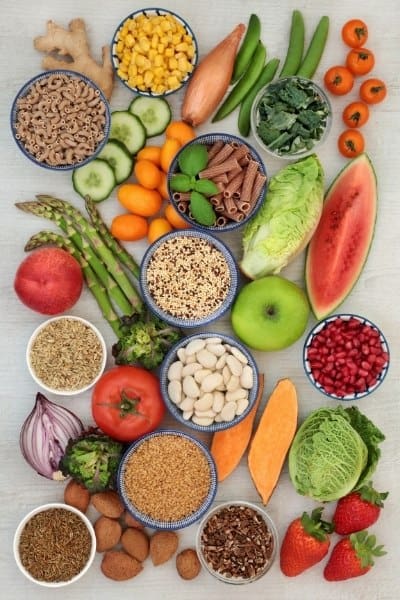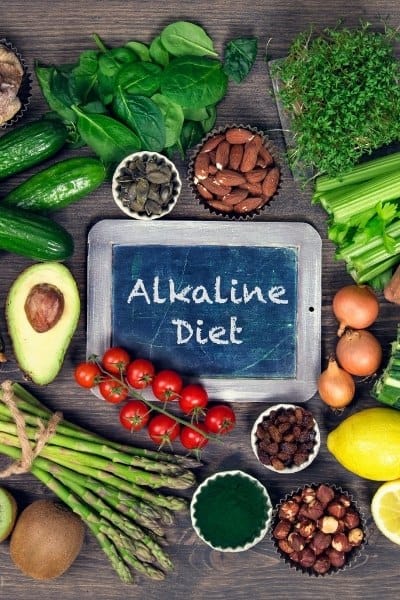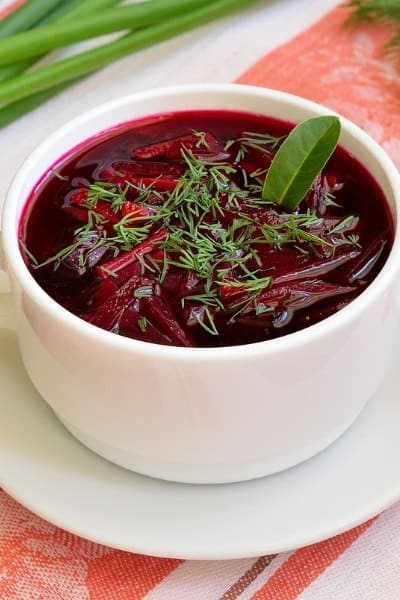There are various fad diets these days that people swear by. From keto through high-protein to Atkins diet, there are diets covering every single food.

So, if you’re anything like me, you might wonder if any of these dietary plans actually work. After all, how can so many diets with all different foods bring results?
One popular diet these days is the alkaline diet. If you follow it, you have to eat foods that neutralize your stomach acid and have a high pH level. Many people swear by it, but others are skeptical. So, what’s the verdict?
To help you figure out if the alkaline diet is worth it, let’s take a look at 10 answers about this diet and alkaline foods that you should know.
Alkaline foods are getting a lot of buzz these days, as more and more people turn to the alkaline diet for health improvement. But is there any truth to the claims from the alkaline diet proponents? Let’s answer some questions to help us figure out if this diet is worth the hype.
Here are 10 alkaline foods answers you should know.
Table of Contents
- 1. What are alkaline foods?
- 2. Does pH level matter when it comes to alkaline foods?
- 3. Which foods are most commonly alkaline?
- 4. Can the alkaline diet be harmful?
- 5. Is there a strong benefit to following an alkaline diet for cancer prevention?
- 6. Is the alkaline diet good for everyone?
- 7. Can the alkaline diet slow down your digestion?
- 8. Can alkaline foods cause acid reflux?
- 9. Is there scientific proof that alkaline foods improve your health?
- 10. Can I eat some acidic foods on an alkaline diet?
1. What are alkaline foods?
Alkaline foods are meant to balance out your body's pH level, preventing various health conditions. Fans of this diet believe that following a diet that consists of at least 80% alkaline foods can help reduce inflammation, promote weight loss, flush out toxins, and even increase energy levels.
This diet is based on healthy eating, so it’s not bad, but most of the claims aren’t supported by experts.
The alkaline diet also shares a lot of similarities with the vegan diet, Mediterranean diet, and anti-inflammatory diet – all of which are based around fresh foods while limiting processed foods and meat.

2. Does pH level matter when it comes to alkaline foods?
While it might make zero sense, the actual pH level of the foods you consume doesn’t matter for the alkaline diet. I know, this sounds crazy.
But the thing that matters the most is the effect that foods you consume have on your body. For example, lemon juice has a very low pH level, but it actually helps alkalize your body. In the same way, the pH level of chicken breast leans towards neutral, but it actually has an acidic effect on your digestive system.
As you can see, simply looking at the pH levels of foods isn’t a very reliable way of choosing alkaline foods. What matters is whether the foods leave an alkaline or acidic ash in your body after they’re digested.
While this might seem complicated to figure out, many online resources can help you figure out whether foods are alkaline or acidic with little to no effort.
3. Which foods are most commonly alkaline?
Some foods are alkaline before consumed, but they change once you digest them. So, to keep it as simple as possible, let’s focus on the foods that are alkaline once you’ve eaten them.
Generally speaking, fresh vegetables are alkaline, but most fruit leans towards acidic. Some of the most alkaline veggies include:

When it comes to fruit, some are alkaline, and these include:
Cooking methods also change the alkalinity and acidity of the food. For example, frying makes foods more acidic, so it’s best to stick to gentler cooking methods, such as boiling, oven-cooking, or steaming.
4. Can the alkaline diet be harmful?
The short answer here is no. The alkaline diet isn’t harmful as it’s primarily based on healthy foods, such as fresh veggies, fruits, beans, nuts, and it limits red meat, processed foods, alcohol, and sugar.
This is a healthy eating pattern, so including a lot of alkaline foods in your diet isn’t a bad thing.
It’s not that alkaline foods are harmful, but the health benefits that proponents of this diet believe in aren’t supported by science. Because of that, it’s perfectly safe to follow the alkaline diet, but make sure you’re aware that it’s not a magic cure to anything.

5. Is there a strong benefit to following an alkaline diet for cancer prevention?
Like with other potential health benefits of the alkaline diet, there’s barely any research supporting the claim that the alkaline diet can help prevent cancer.
That’s why this diet is rather controversial among experts as the benefits aren’t supported by science. The idea that the alkaline diet lowers your risk of cancer comes from studies that showed that cancer cells thrive in an acidic environment.
But that was observed in a lab, not the human body. So, there’s a very small chance that following the alkaline diet can prevent cancer.
On the bright side, the foods that you should eat on an alkaline diet are often very rich in antioxidants and powerful plant compounds.
These are great at flushing out harmful free radicals, preventing oxidative stress, and reducing inflammation – all of which are potential causes of various types of cancer. So, it’s not the alkaline diet in itself that has anti-cancer benefits, but the healthy veggies and fruits that it promotes, which we all should eat more of anyway.
6. Is the alkaline diet good for everyone?
The alkaline diet is based around old-fashioned healthy eating. If you follow this diet, you should primarily eat fresh vegetables, fruits, and nuts and drink more water.
You should also limit your consumption of alcohol, processed foods, and meat. No matter who you ask: This is a healthy diet. But make sure not to completely cut out other, more acidic foods from your diet as they’re still healthy and nutritious.
No matter what diet you follow, eating more fresh veggies and fruits is a good idea. Many people these days don’t take in enough vitamins, so eating fresh produce can help with this problem.

7. Can the alkaline diet slow down your digestion?
Since the alkaline diet is based around healthy, fresh produce, it’s unlikely to cause any digestive issues. On the other hand, remember that if you eat a lot of vegetables and fruits that are high in fiber, you might experience constipation and bloating.
So, if your stomach is particularly sensitive to such foods, make sure to balance it out with other foods, such as whole grains and healthy fats.
Another thing that a lot of people on the alkaline diet advocate for is alkaline water. While this water is healthy, drinking it in large quantities can potentially cause indigestion.
This is pretty self-explanatory because alkaline water not only dilutes gastric acid but also reduces its pH level. So, the food might take longer to digest.

8. Can alkaline foods cause acid reflux?
There are a lot of factors that influence acid reflux, not just the pH level and acidity of foods. So, even though you eat alkaline foods, you might experience some symptoms such as heartburn, especially if your stomach is sensitive.
Generally, most people should be perfectly OK with eating alkaline foods, such as veggies and some fruit, without any issues. But always make sure to check how your body reacts. Then, you can simply cut some trigger foods out of your diet.
9. Is there scientific proof that alkaline foods improve your health?
Most health claims about the alkaline diet, such as anti-cancer benefits and overall health improvement aren’t based on science. Some studies, though, show some potential benefits of the alkaline diet.
For example, drinking more water and eating more alkaline foods has been linked to an improvement in muscle and joint pain as well as a reduction in stress levels and tension. While these studies didn’t include a lot of participants, adding more alkaline foods to your diet isn’t harmful and can only bring health benefits.

Another reason that following the alkaline diet may not bring that many health benefits is that diet doesn’t influence your body’s pH level. Your body keeps a very tightly controlled pH level that can’t be affected by simply eating more spinach and kale. These foods do have excellent health benefits, but they won’t help deacidify your body in any way.
10. Can I eat some acidic foods on an alkaline diet?
If you want to try the alkaline diet, you should consume mostly veggies, fruits, whole grains, and healthy fats and limit meat, processed foods, and sugars.
So, it doesn’t mean that you have to remove all your favorite foods from your diet altogether. Instead, limit them but still enjoy them in moderation.
The alkaline diet is rather controversial. Many people claim it has incredible health benefits, but as you can see, not all of them are backed by science.
If you want to, it’s safe and beneficial to follow the basic principles of the alkaline diet as it promotes healthy eating. But remember that it’s not a magical diet that will fix all your issues.
Don't know what to drink? Check out these articles: 20 Most and Least Acidic Juices and 20+ Alcoholic Drinks Ranked by Acidity Level
